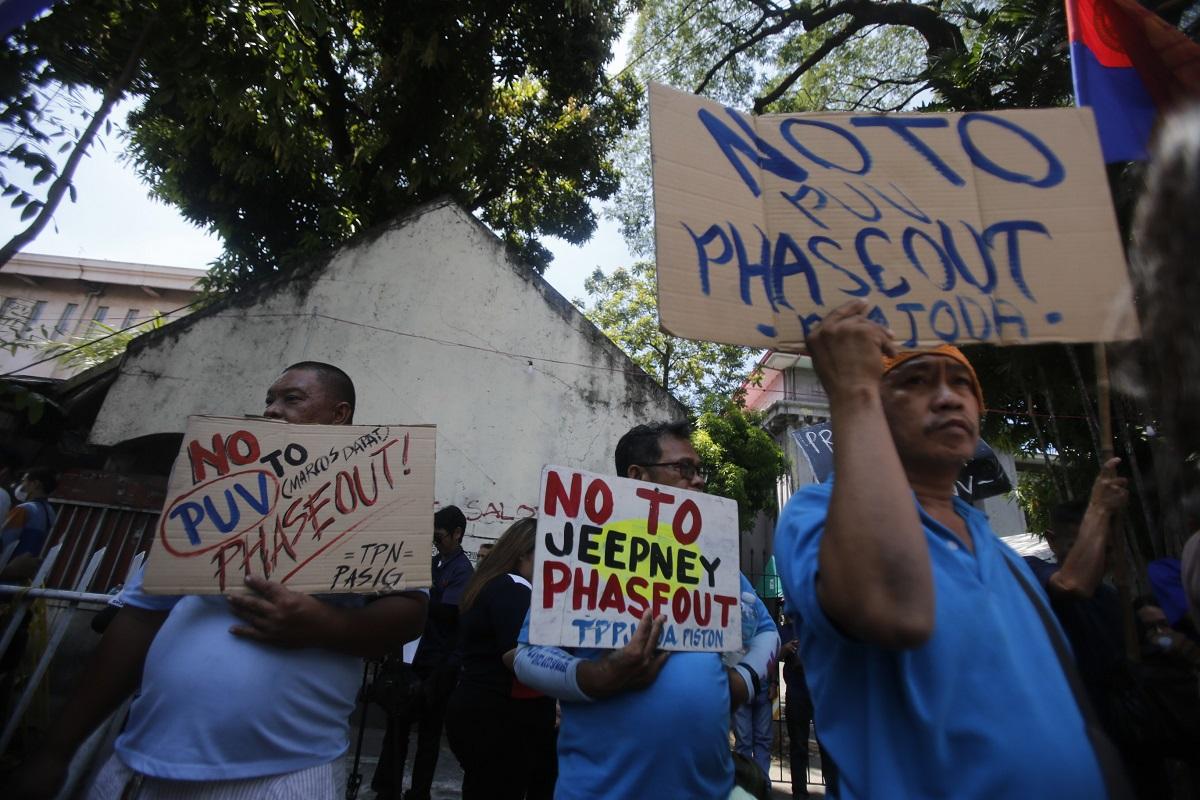
The Public Utility Vehicle Modernization Program (PUVMP) in the Philippines is facing criticism from employers and workers groups, who are urging the government to review the program. They argue that the PUVMP has had an adverse impact on the livelihood of jeepney operators and drivers and call for an urgent review to address legal, financial, and human rights issues. The groups are also advocating for the creation of an affordable, sustainable, and carbon-neutral mass transport system. They highlight the lack of consultation with jeepney operators and drivers in the design of modern jeeps or alternative vehicles, as well as the lack of compensation for surrendering existing jeepney units and the high cost of importing modern jeepneys. The forced consolidation of franchises into cooperatives without consent or equitable participation is also criticized. The groups argue that the PUVMP contravenes the UN Sustainable Development Goals and could have a negative impact on working-class commuters, domestic businesses, and the economy. However, they believe that if executed properly, the PUVMP could enhance the country's jeepney manufacturing industry and create jobs. They call for increased government support to build the local jeepney industry's production capacity and a more realistic timetable for the rollout of domestic jeepneys. The groups stress the importance of meaningful social dialogue and stakeholder participation in the transportation modernization process [cc1f4aff].
The Department of Transportation plans to implement the PUVMP while awaiting the Supreme Court's decision on the petition to halt the program. The application period for consolidation of individual PUV operators ends on April 30. The PUVMP, which started in 2017, aims to replace jeepneys with vehicles that meet certain standards to reduce pollution and improve roadworthiness [cc1f4aff].
The challenges faced by the PUVMP in the Philippines highlight the need for a comprehensive review of the program. Employers and workers groups are calling for changes to address the legal, financial, and human rights issues associated with the program. They also emphasize the importance of creating an affordable, sustainable, and carbon-neutral mass transport system. The lack of consultation with jeepney operators and drivers, the absence of compensation for surrendering existing jeepney units, and the high cost of importing modern jeepneys are among the concerns raised. The forced consolidation of franchises into cooperatives without consent or equitable participation is also criticized. The groups argue that the PUVMP could have a negative impact on working-class commuters, domestic businesses, and the economy, but if executed properly, it could enhance the country's jeepney manufacturing industry and create jobs. They call for increased government support and stakeholder participation in the transportation modernization process. The Department of Transportation is moving forward with the implementation of the PUVMP while awaiting the Supreme Court's decision on the program [cc1f4aff].